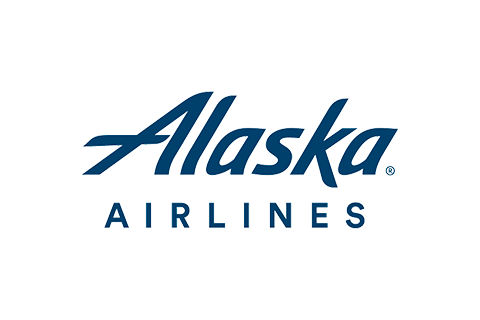Boeing's Compensation to United Airlines for MAX 9 Grounding
April 18, 2024, 9:36 am

Location: United States, Illinois, Chicago
Employees: 10001+
Founded date: 1916
Total raised: $25.01B
United Airlines to receive compensation from Boeing for damages caused by MAX 9 grounding, signaling a turbulent time for the aerospace industry.
United Airlines, a prominent Boeing customer, faced a $200 million hit in the first quarter due to the grounding of 79 of its 737 MAX 9 aircraft. The grounding was a result of safety checks following a cabin panel blowout on an Alaska Airlines-operated MAX 9 jet.
In response to the financial damages incurred, United Airlines announced a confidential agreement with Boeing that will provide the carrier with "credit memos" for future purchases to offset the losses from the grounding and rescheduling of deliveries. A credit memo serves as an official acknowledgment of money owed back to a customer.
Boeing, facing its own challenges, had paid about $160 million to Alaska Airlines in the first quarter as initial compensation for the grounding. The mid-air panel blowout incident has not only impacted Boeing's reputation but also led to a management shakeup and production curbs, with deliveries falling by half in March.
The ripple effect of Boeing's safety crisis has forced United Airlines to adjust its fleet plans, cutting its total aircraft delivery estimates for the year by 25% to 66 jets. This adjustment reflects the reality of what manufacturers are able to deliver amidst the ongoing challenges in the aerospace industry.
Despite the setbacks, United Airlines expects stronger quarterly earnings, driven by robust demand for travel. The airline received just seven planes in the first quarter, significantly lower than the previous year, and anticipates receiving additional MAX and 787 planes from Boeing in the remainder of the year.
The incident has also raised questions about the certification of the larger variant MAX 10, impacting United's fleet plans. As a result, the airline has converted some MAX 10 orders into MAX 9 and retained the flexibility to convert more orders as needed, ensuring deliveries of narrowbody aircraft between 2025 and 2027.
In the short term, delays in aircraft deliveries have led to reduced aircraft utilization, resulting in overstaffing at United Airlines. The company has paused pilot hiring and offered voluntary unpaid leave to its pilots to manage the impact of the delays.
Despite the challenges, United Airlines reported strong demand for domestic and transatlantic flights, along with an uptick in corporate travel spending. The airline expects an adjusted profit in the range of $3.75 to $4.25 a share in the June quarter, reaffirming its 2024 profit estimate of $9-$11 a share.
The turbulence in the aerospace industry, marked by Boeing's compensation to United Airlines and adjustments in fleet plans, underscores the need for resilience and adaptability in the face of unforeseen challenges.
United Airlines, a prominent Boeing customer, faced a $200 million hit in the first quarter due to the grounding of 79 of its 737 MAX 9 aircraft. The grounding was a result of safety checks following a cabin panel blowout on an Alaska Airlines-operated MAX 9 jet.
In response to the financial damages incurred, United Airlines announced a confidential agreement with Boeing that will provide the carrier with "credit memos" for future purchases to offset the losses from the grounding and rescheduling of deliveries. A credit memo serves as an official acknowledgment of money owed back to a customer.
Boeing, facing its own challenges, had paid about $160 million to Alaska Airlines in the first quarter as initial compensation for the grounding. The mid-air panel blowout incident has not only impacted Boeing's reputation but also led to a management shakeup and production curbs, with deliveries falling by half in March.
The ripple effect of Boeing's safety crisis has forced United Airlines to adjust its fleet plans, cutting its total aircraft delivery estimates for the year by 25% to 66 jets. This adjustment reflects the reality of what manufacturers are able to deliver amidst the ongoing challenges in the aerospace industry.
Despite the setbacks, United Airlines expects stronger quarterly earnings, driven by robust demand for travel. The airline received just seven planes in the first quarter, significantly lower than the previous year, and anticipates receiving additional MAX and 787 planes from Boeing in the remainder of the year.
The incident has also raised questions about the certification of the larger variant MAX 10, impacting United's fleet plans. As a result, the airline has converted some MAX 10 orders into MAX 9 and retained the flexibility to convert more orders as needed, ensuring deliveries of narrowbody aircraft between 2025 and 2027.
In the short term, delays in aircraft deliveries have led to reduced aircraft utilization, resulting in overstaffing at United Airlines. The company has paused pilot hiring and offered voluntary unpaid leave to its pilots to manage the impact of the delays.
Despite the challenges, United Airlines reported strong demand for domestic and transatlantic flights, along with an uptick in corporate travel spending. The airline expects an adjusted profit in the range of $3.75 to $4.25 a share in the June quarter, reaffirming its 2024 profit estimate of $9-$11 a share.
The turbulence in the aerospace industry, marked by Boeing's compensation to United Airlines and adjustments in fleet plans, underscores the need for resilience and adaptability in the face of unforeseen challenges.

